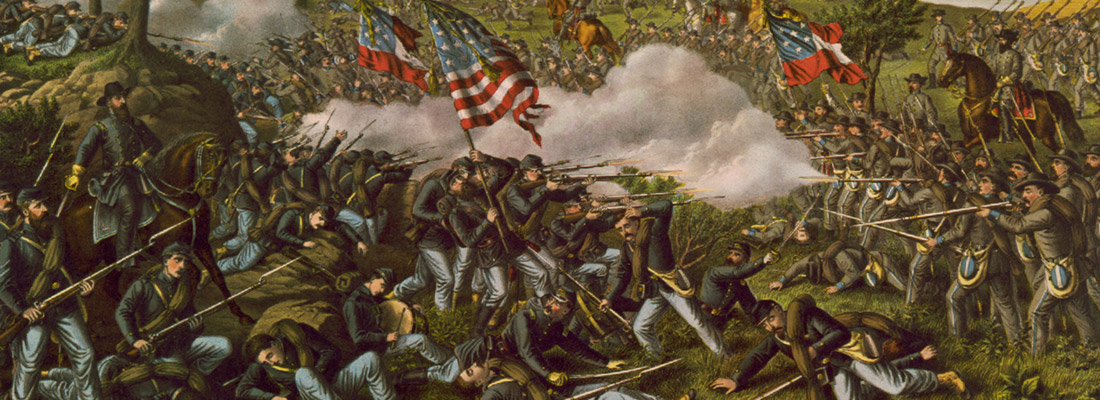Near the end of June, a poll by Rasmussen Reports said that thirty-two percent of Americans agreed that “it’s likely that the United States will experience a second civil war sometime in the next five years,” and a whopping fifty-nine percent were concerned that “those opposed to President Trump’s policies will resort to violence.”
This might leave you with the impression that things are looking pretty bad for the future of America . . . and perhaps they are. We seem to be simmering right at the edge of an eruption into political violence. The rhetoric between America’s “left” and “right” wings has adopted a kind of hateful irrationality, where it has become acceptable to turn the slightest political disagreement into screaming accusations of bigotry, misogyny, conspiracy, and treason. It stands to reason that, with so many people having so many overheated emotions, it would not take much to turn this powder-keg into a bomb. But it will not result in a civil war. Not yet, anyway.
The good news is that we are in the midst of an important political correction . . . though it is a small one and it is still reversible.
In recent decades we have seen an unprecedented string of assaults on human rights, with razor-thin victories in the U.S. Supreme Court for free speech, the freedom of religion, the right to keep and bear arms, and more. Of course there have also been razor-thin losses for private property rights and federalism. And, headed into the 2016 presidential election, there was a vacancy on the court. Justice Antonin Scalia, who was usually on the right side of these and other issues, died in February 2016, and President Barack Obama’s (D) nomination of Judge Merrick Garland stalled thanks to the hypocritical actions of the Republican majority in the U.S. Senate.
If former Secretary of State Hillary Clinton (D) had won, the Supreme Court would have almost immediately shifted from being essentially tied to being reliably (but narrowly) to the left . . . and those kinds of decisions that used to be razor-thin victories for human rights would have ended up as razor-thin defeats. And now, with the resignation of Justice Anthony Kennedy, Clinton would have had the chance to turn that razor-thin anti-liberty court into one reliably opposed to some of our most fundamental rights.
Remember what I said in my reluctant 2016 endorsement of now-President Donald Trump (R):
The rapid erosion of human rights and civil liberties in the United States over the last decade has been frightening. Our republic, and the rights we hold dear, are now held in the balance by a tied court. A Clinton presidency, and the statist Supreme Court majority that will result, will likely mean the end of them. This is not hyperbole. . . .
We, the people, have begun to reassert our sovereignty, but our gains have been tenuous and they can easily be reversed. If you think people are fired-up and angry now, and if you fear that the country is already on the verge of descending into political discord and violence, just wait until a Clinton nominee on the Supreme Court votes with a 5-4 majority to repeal religious free exercise or the right to keep and bear arms.
Later in the same piece, I pointed out that, “we can withstand a president who plays fast-and-loose with the constitution . . . but we would be hard-pressed to survive a decisively anti-liberty court.” We can—and often have—held our breath for four or eight years as a bad president wreaked havoc with our political institutions and our collective emotional well-being. That may be exactly what we’re doing right now. But we only have recourse against that, and against direct and lasting encroachments on our liberty, when we have a Supreme Court that knows, understands, and upholds the U.S. Constitution, and especially its Bill of Rights.
That is why I believed in 2016, and still believe today, that a civil war would have been inevitable had we elected Clinton. Yes, you heard that right. It probably would not have happened during her presidency, but it would have happened. It would have become necessary as the Supreme Court she shaped slowly dismantled the Bill of Rights in the decades following. Electing Trump did not guarantee that it won’t happen, but it bought us a little bit of time and a second chance to change our trajectory.
We got one pro-liberty justice on the court, Neil Gorsuch (replacing Scalia). We’re likely about to get a second, Brett Kavanaugh (replacing Kennedy). For all his many unforgivable faults, Trump is keeping his Supreme Court promises. And these promises are the reason—the only reason—I voted for him. At the time, I wrote, “This election is about whether human rights still matter, and whether the American people will be free in the years and decades to come. With the United States Supreme Court in the balance, we must deny Clinton the presidency.” And we did. Thank God.


